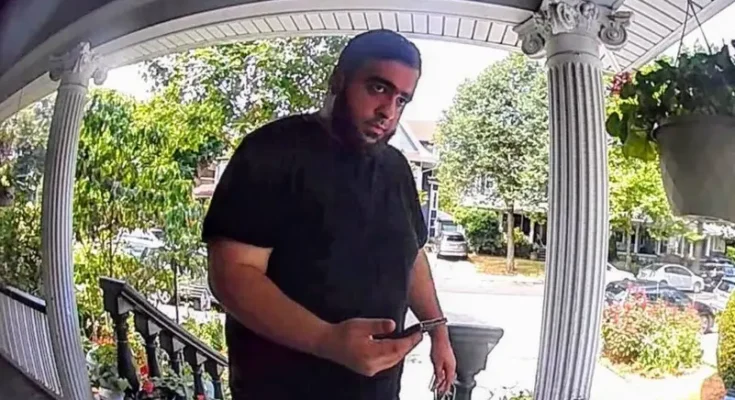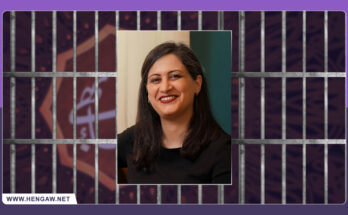Source: AlArabiya
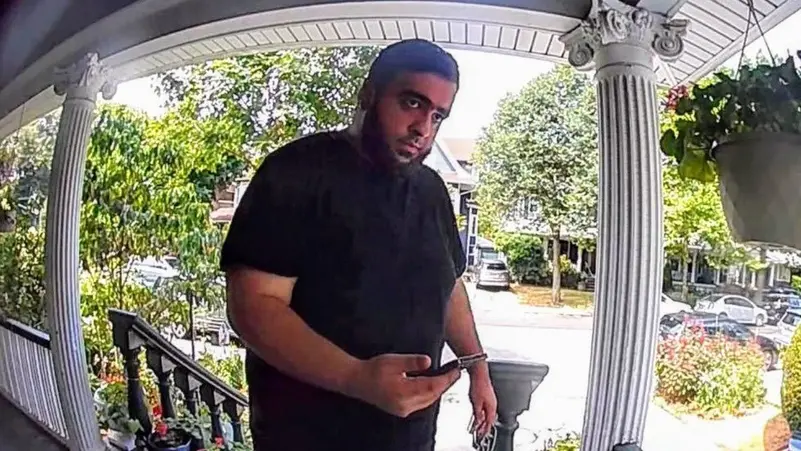

By Mariam Memarsadeghi
After the US foiled a 2021 plot by the Islamic Republic of Iran to kidnap dissident journalist Masih Alinejad from Brooklyn, New York, the regime has continued undeterred in its efforts to kill the US citizen of Iranian origin on American soil.
On January 27, the US Department of Justice unsealed murder-for-hire and money laundering charges against three men in a second plot against Alinejad. One of the suspects, Rafat Amirov, had been living in Iran and traveled to the US just one day before the DOJ announcement. Amirov and the other men are alleged to be part of “Thieves-in-Law,” an East-European crime network acting as proxy for Tehran.
Alinejad is a thorn in the side of the world’s chief state sponsor of terror, bringing to her 8 million social media followers unshakeable scrutiny of the regime’s violations of human rights, especially its denial of women’s basic right to bodily autonomy and choice of dress. Meanwhile, Supreme Leader Ayatollah Ali Khamenei’s regime has been facing an unprecedented, nationwide uprising, the most existential threat to its survival since the 1979 revolution that brought it to power. A driver of the people power movement are videos taken by Iranians of their protests, strikes, and other acts of civil disobedience, notably women walking unveiled in defiant solidarity with Mahsa Amini, who was brutally killed by the regime’s so-called Morality Police for showing strands of her hair from beneath her hijab.
Alinejad is a consistent purveyor of these subversive videos, and she has, over the years, regularly posted videos of women defying the regime’s draconian control over their bodies as part of her White Wednesdays campaign—a precursor to the now pervasive revolutionary disobedience of not only the regime’s mandated head covering but its dehumanizing Islamist ideology writ large.
The regime’s motive for eliminating Alinejad is clear. It would be rid of a perpetually loud, tireless activist who echoes the voices of courageous Iranians seeking freedom and justice, including the over 18,000 currently imprisoned. Killing her would project an image of universal invincibility back inside the country to a people already tormented by stories of medieval brutality, including the systemic rape of girls and women inside the theocracy’s dungeons. It would also terrorize other diaspora activists working to bring down the regime.
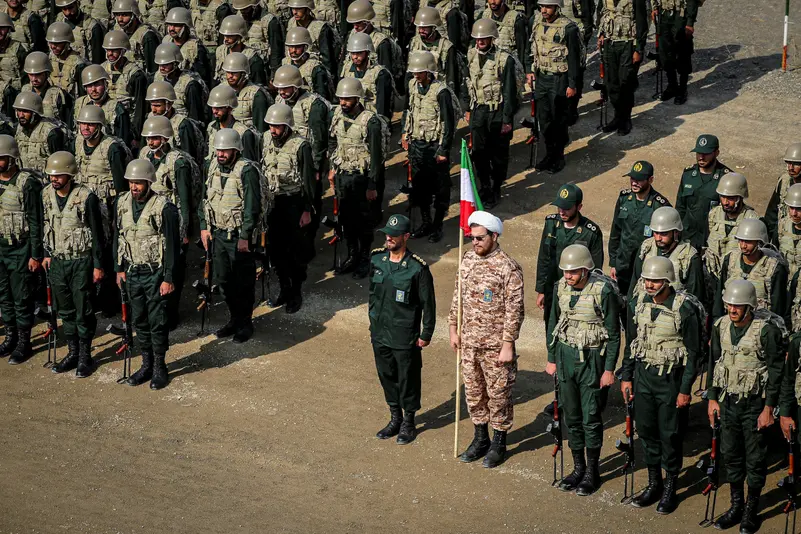
But the Islamic Republic’s willingness to kill on US soil is not just an extension of its repression of the struggle to overthrow it. According to the Department of Justice, it is “a dangerous menace to national security.” The regime has been trying to kill on American soil from its very beginnings.
In 1980, the regime assassinated Ali Akbar Tabatabaei at his Bethesda, Maryland home. Tabatabaei was killed by an American Muslim convert who answered to the Islamists in Tehran and fled there after the kill. At the time in Tehran, dozens of American diplomats and citizens were held hostage and Khomenei’s henchmen were on an execution spree of officials in the Shah’s government.
The global terror of the revolution has never receded. By the US State Department’s estimation, between 1979 and 2000 alone, the regime pulled off 360 targeted murders across the world. These included Iran’s most admired democratic dissidents. Former Prime Minister Shahpour Bakhtiar, an ardent liberal and foe of Islamic fundamentalism, was knifed to death in 1991 in Paris, while beloved entertainer Fereydoun Farrokhzad was also knifed to death in 1992 in Bonn. A month after assassinating Farrokhzad, the regime assassinated three Iranian-Kurdish opposition leaders and their translator at a meeting at the Mykonos Greek restaurant in Berlin. In 1994, the regime bombed the Argentine Israelite Mutual Association (AMIA), a Jewish community center in Buenos Aires, killing 85 and injuring over 300.
While the “Mykonos” attack and the “AMIA bombing” have received attention by Western governments and media, the regime’s less visible, ongoing kidnapping and killing of ordinary activists, particularly in neighboring Turkey where many have sought asylum, are seldom prosecuted or scrutinized. Even in the UK, in 2022 alone, MI5 says Tehran attempted at least 10 assassinations or kidnappings. In Canada, where regime officials and their families also launder money and have homes and businesses, the police have warned Iranian journalists and human rights activists about active assassination plots.
Though Western police and prosecutors maintain vigilance against Tehran’s transnational repression, foreign ministries have refused to make robust responses to the regime’s global terror apparatus a part of their Iran policies.
Most notably, the Biden administration and the UK government are openly committed to diplomacy with the regime despite their rhetoric and sanctions concerning its human rights abuses. The result is a bizarre cycle in which Western governments incentivize murder plots on their own soil by ignoring them—because to do otherwise would contradict the false premises of “moderation” upon which negotiations like the Joint Comprehensive Plan of Action (JCPOA) are based. The British Foreign Office has impeded plans to list the Islamic Revolutionary Guard Corps (IRGC) as a terrorist entity in order to keep open communication with the regime. US Secretary of State Antony Blinken has in fact linked the regime’s brutality at home to the necessity of entering another agreement, a move seen by many human rights activists as cynical justification for a policy of appeasement.
In continuing to court Tehran, the Biden administration is not just betraying the Iranian struggle for a democratic future and endangering lives of rights activists, even on US soil. Open kill orders exist on officials of the former Trump administration, including an IRGC offer to pay an assassin $300,000 to kill former National Security Advisor John Bolton and $1 million to assassinate former Secretary of State Mike Pompeo.
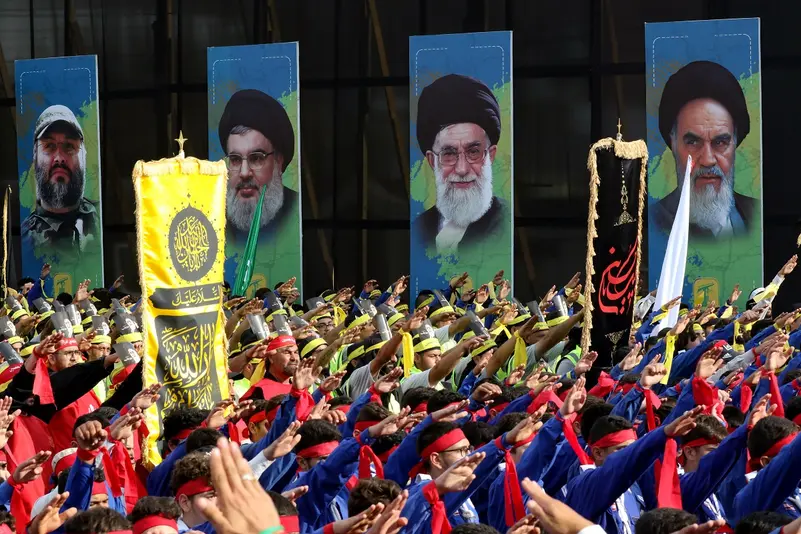
The attack on Salman Rushdie on US soil in 2022—the near-fulfillment of a fatwa by Khomeini to kill the acclaimed author—was also barely recognized by the Biden administration, a signal to Tehran that its acts of terror would continue to be overlooked.
Since the start of Iran’s uprising for democracy, the US and other Western governments have responded with a drip-drip of sanctions on regime officials while maintaining an overall posture of continued engagement with the Islamic Republic. Even the regime’s arming of Russia with deadly drones used in attacks on civilians in Ukraine has not spurred a shift in thinking, as seen by the reluctance of many countries to list the IRGC as terrorists. The hesitance to disappoint Khamenei’s cabal only emboldens their naked aggression and is at odds with the national interest of democratic nations and with broader global peace and security.
Recently, over 450 of the world’s most prominent political leaders, authors, intellectuals, celebrities, human rights organizations, and dissidents penned a statement backing the Iranian people’s freedom struggle, recognizing their victory as profound potential for “renew[ing] the global tide of democratization that was so strong in the latter twentieth century but has ebbed in the face of authoritarian counterattack.”
Western policymakers should heed their recommendations, including for the listing of the IRGC as a terror organization and the sanctioning of the Supreme Leader himself. A regime that is actively targeting citizens of Western countries on their soil, aiding in the killing of innocent Ukrainian civilians, and torturing and raping thousands of Iran’s most noble souls cannot be trusted for any diplomacy or deal. It must be defeated.
Mariam Memarsadeghi is Founder and Director of the Cyrus Forum, Senior Fellow at the Macdonald-Laurier Institute, and a leading advocate for a democratic Iran.

